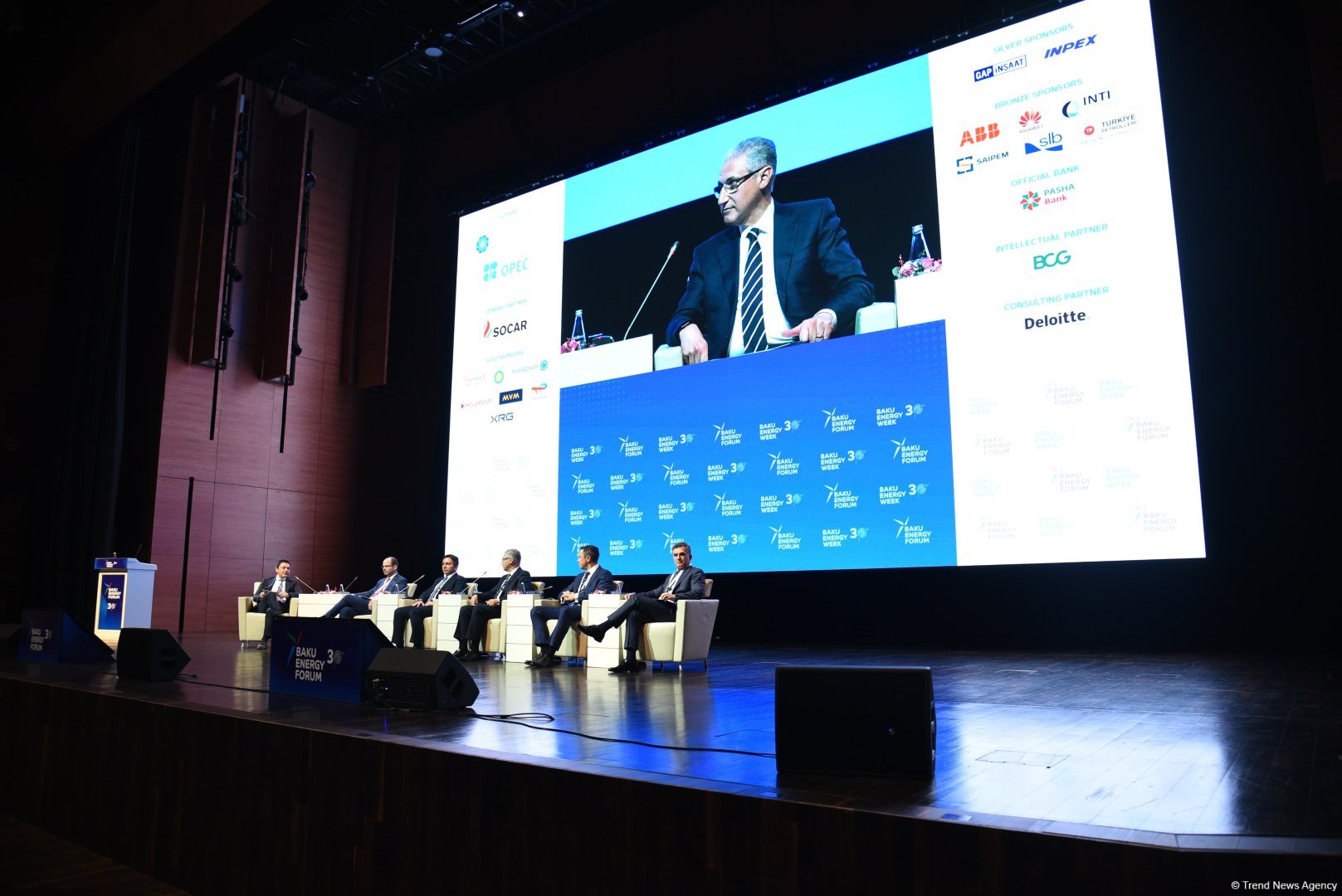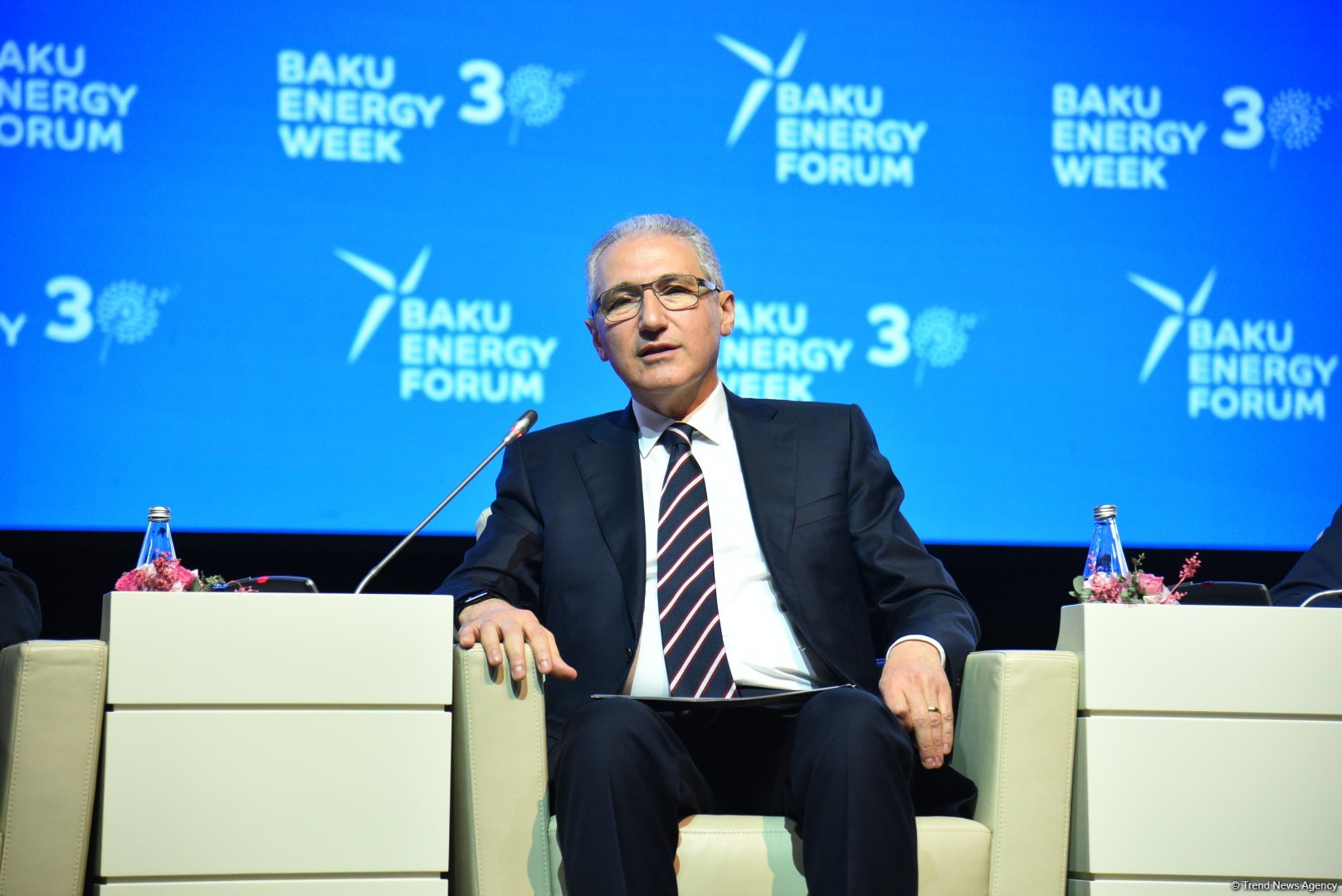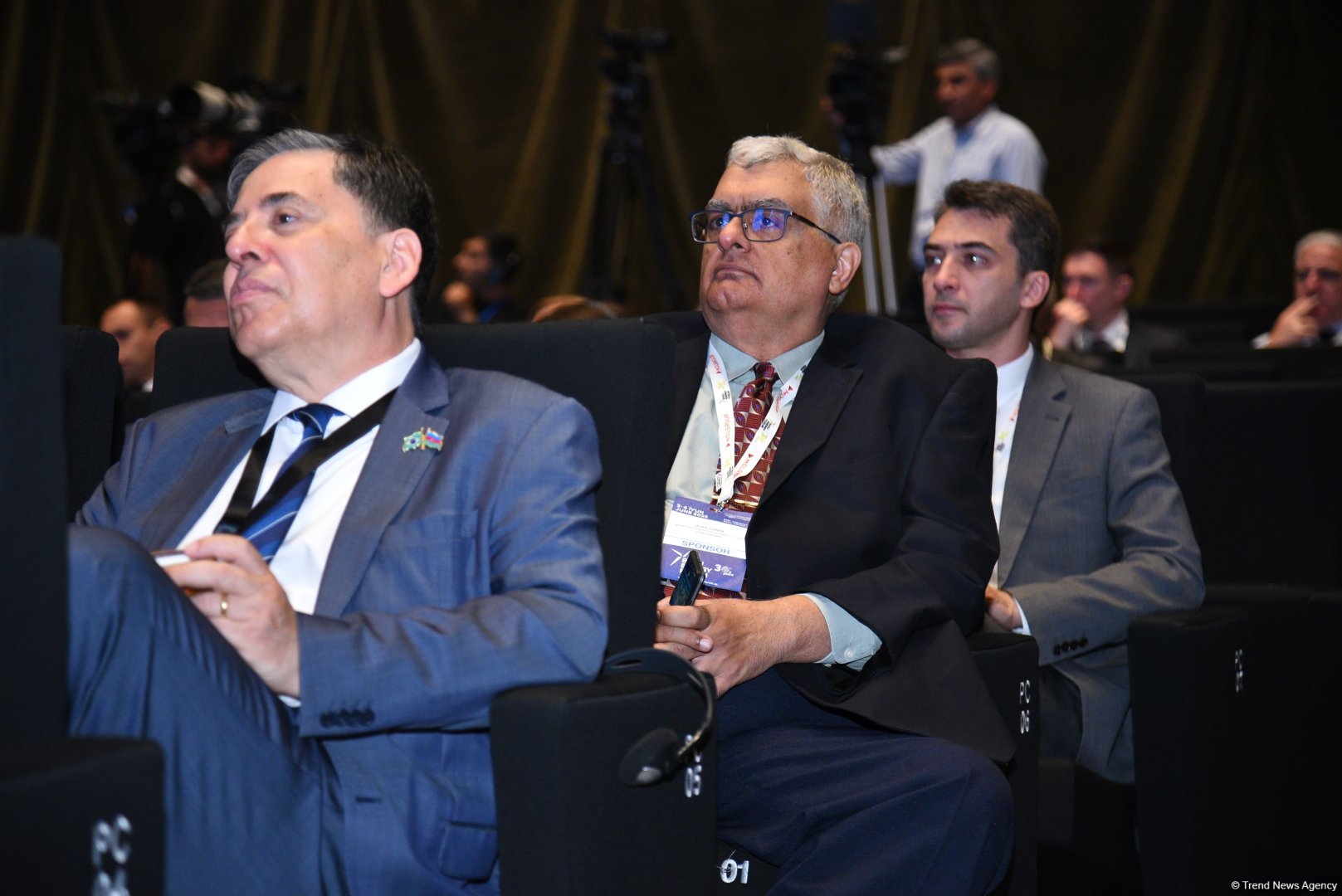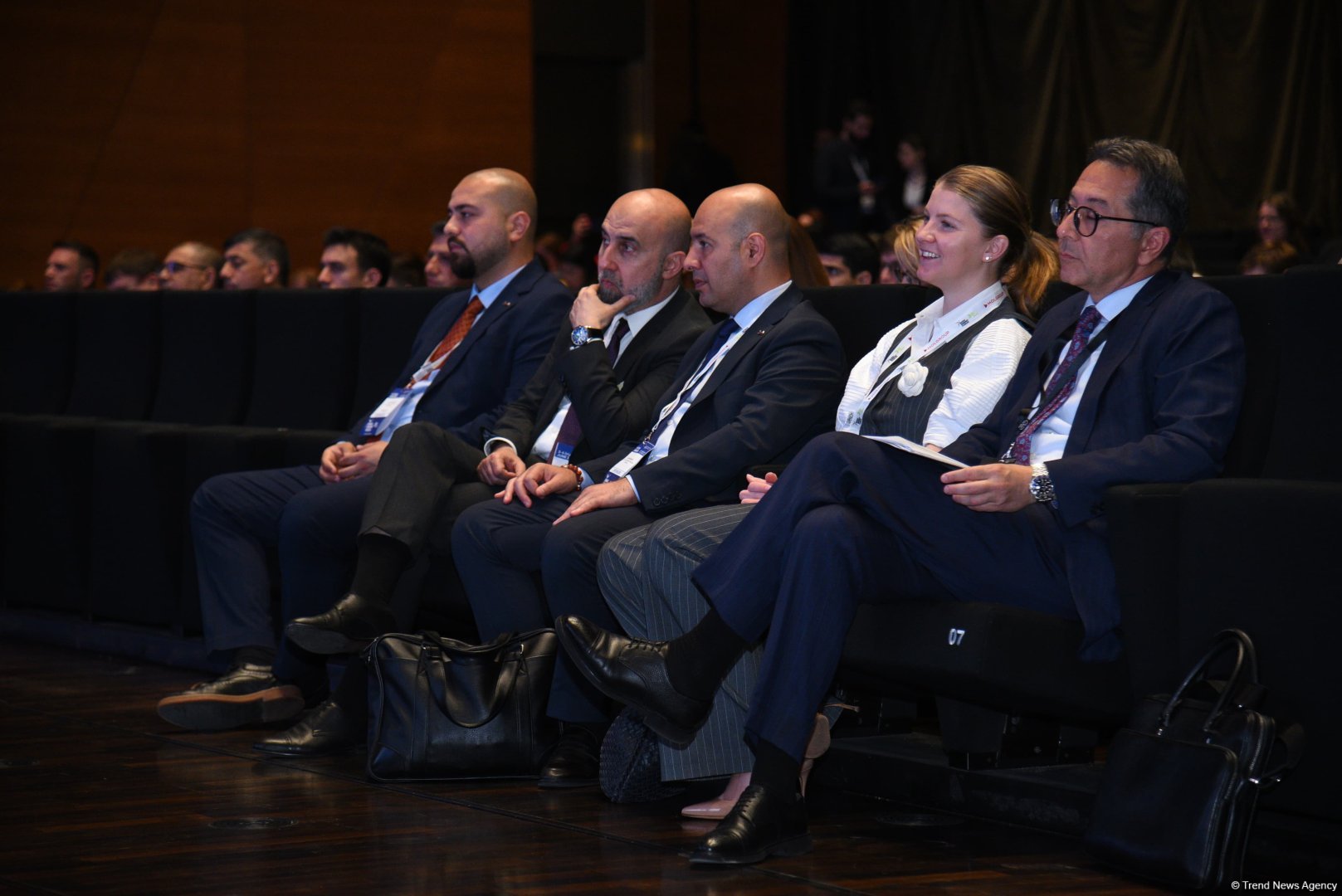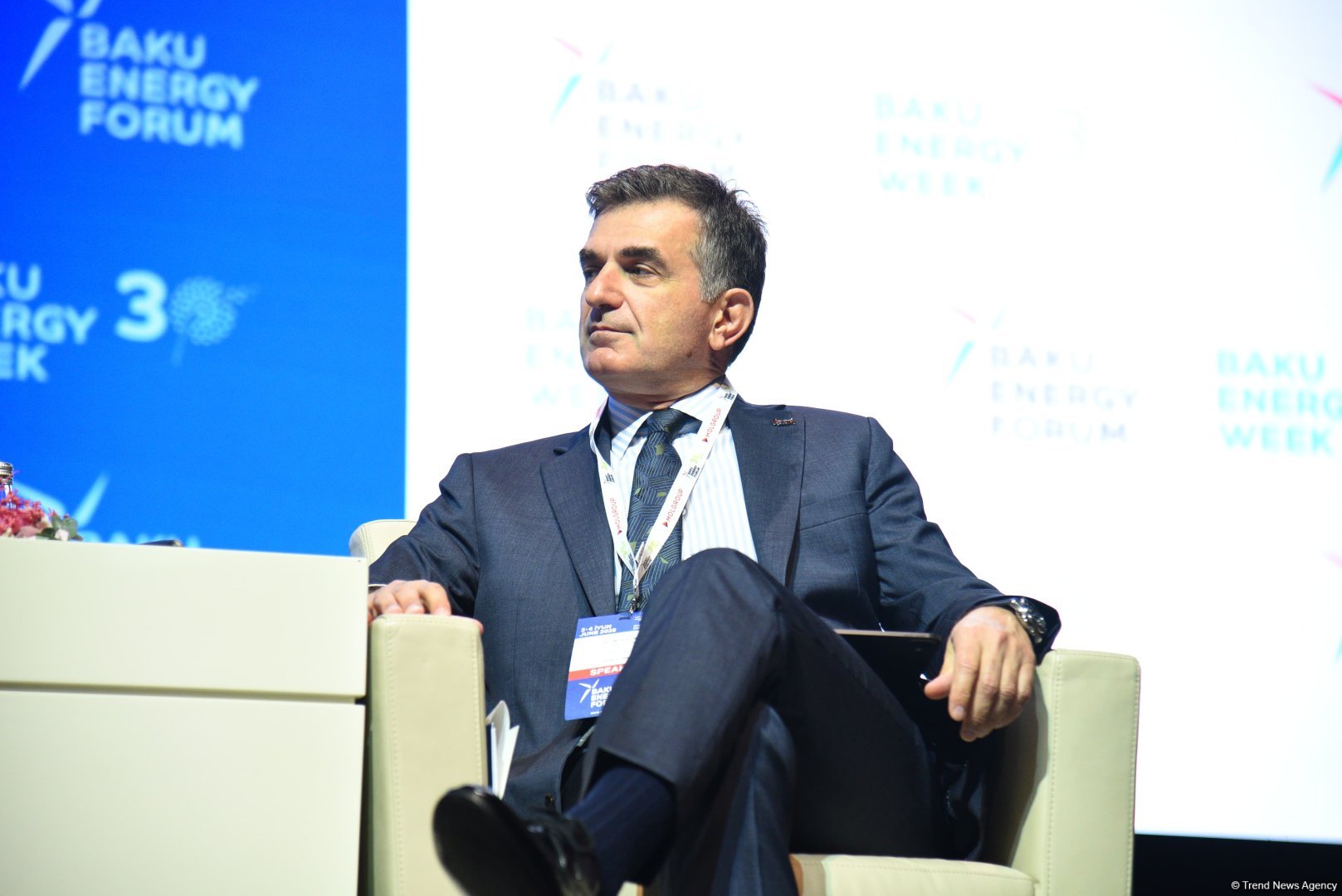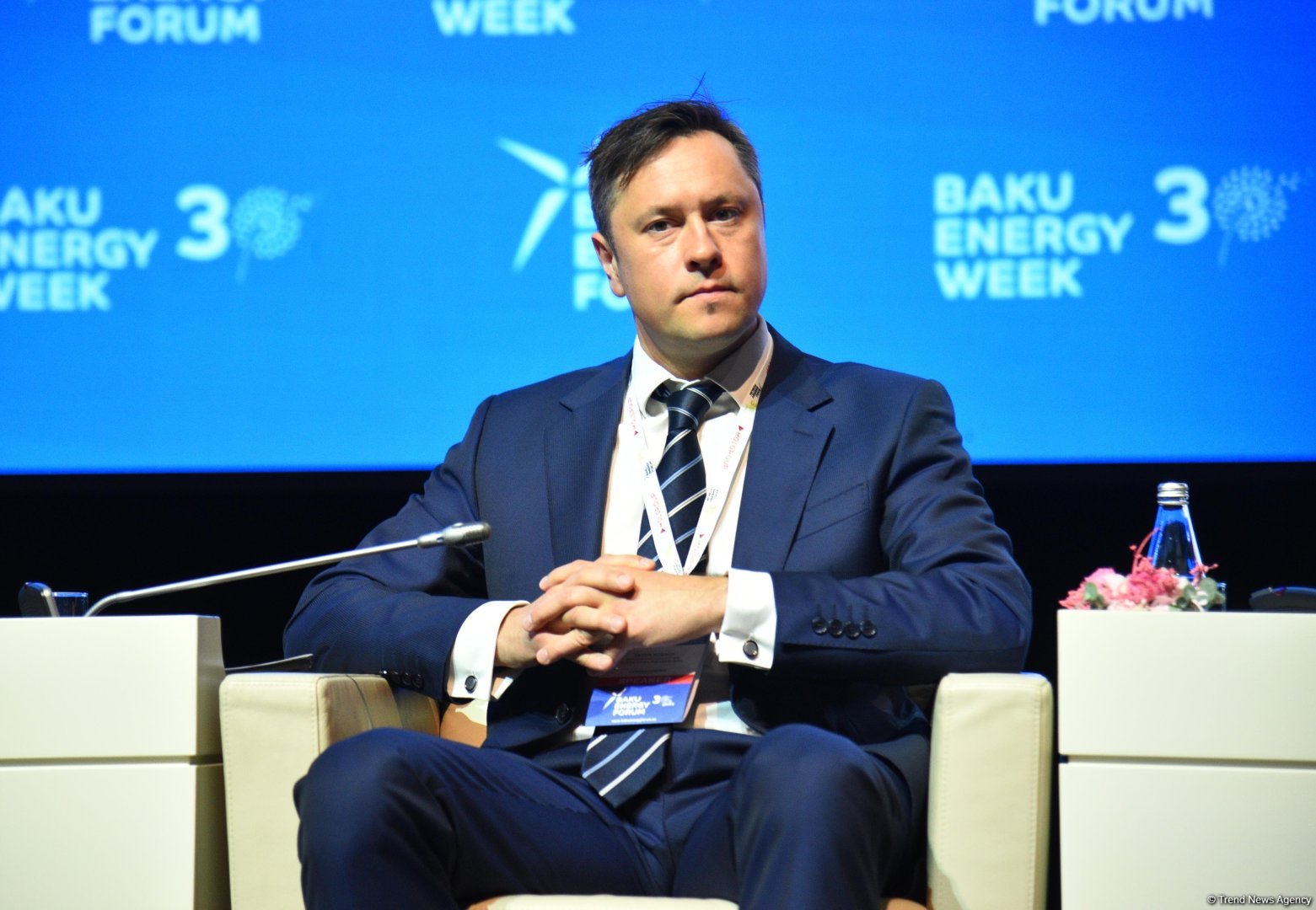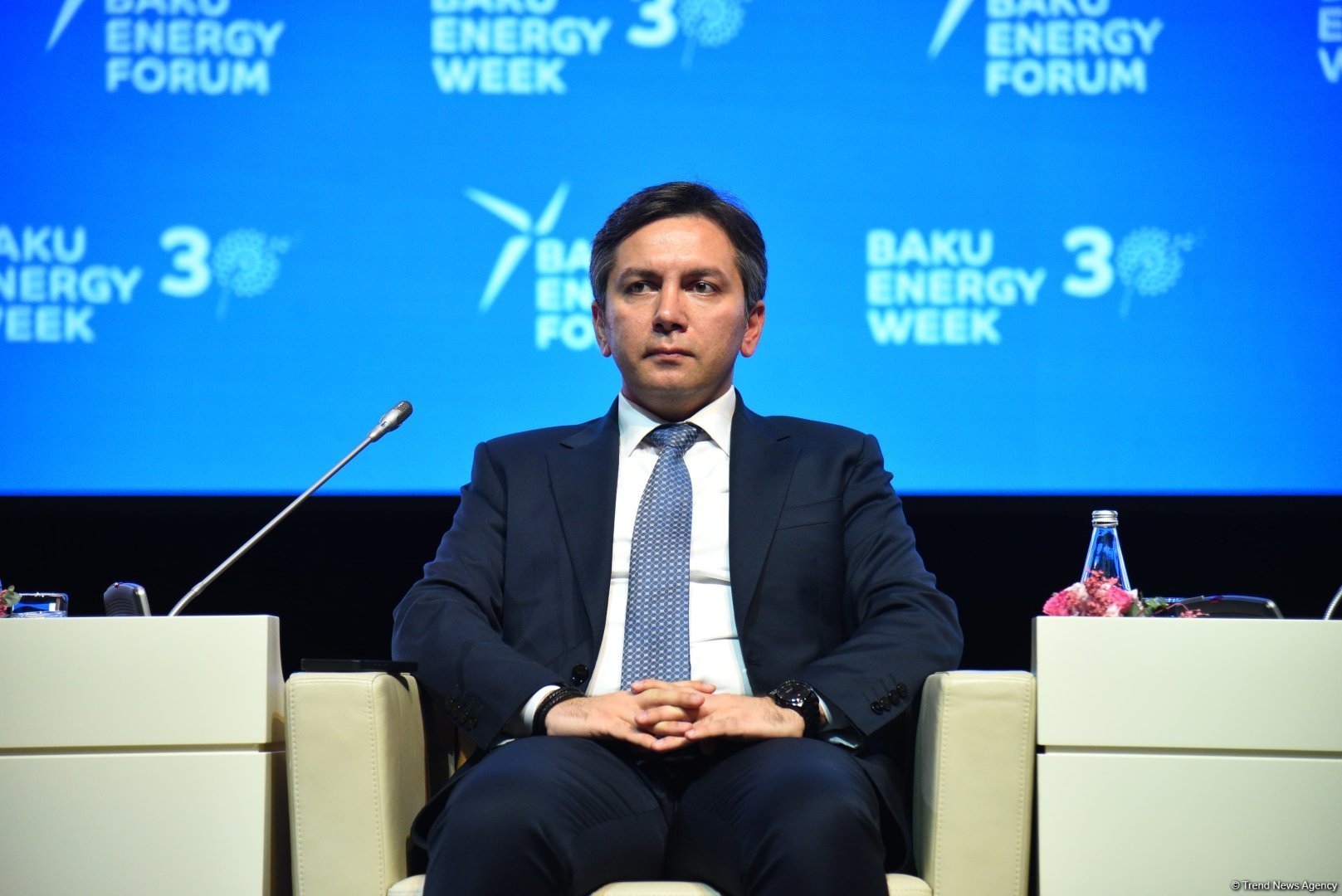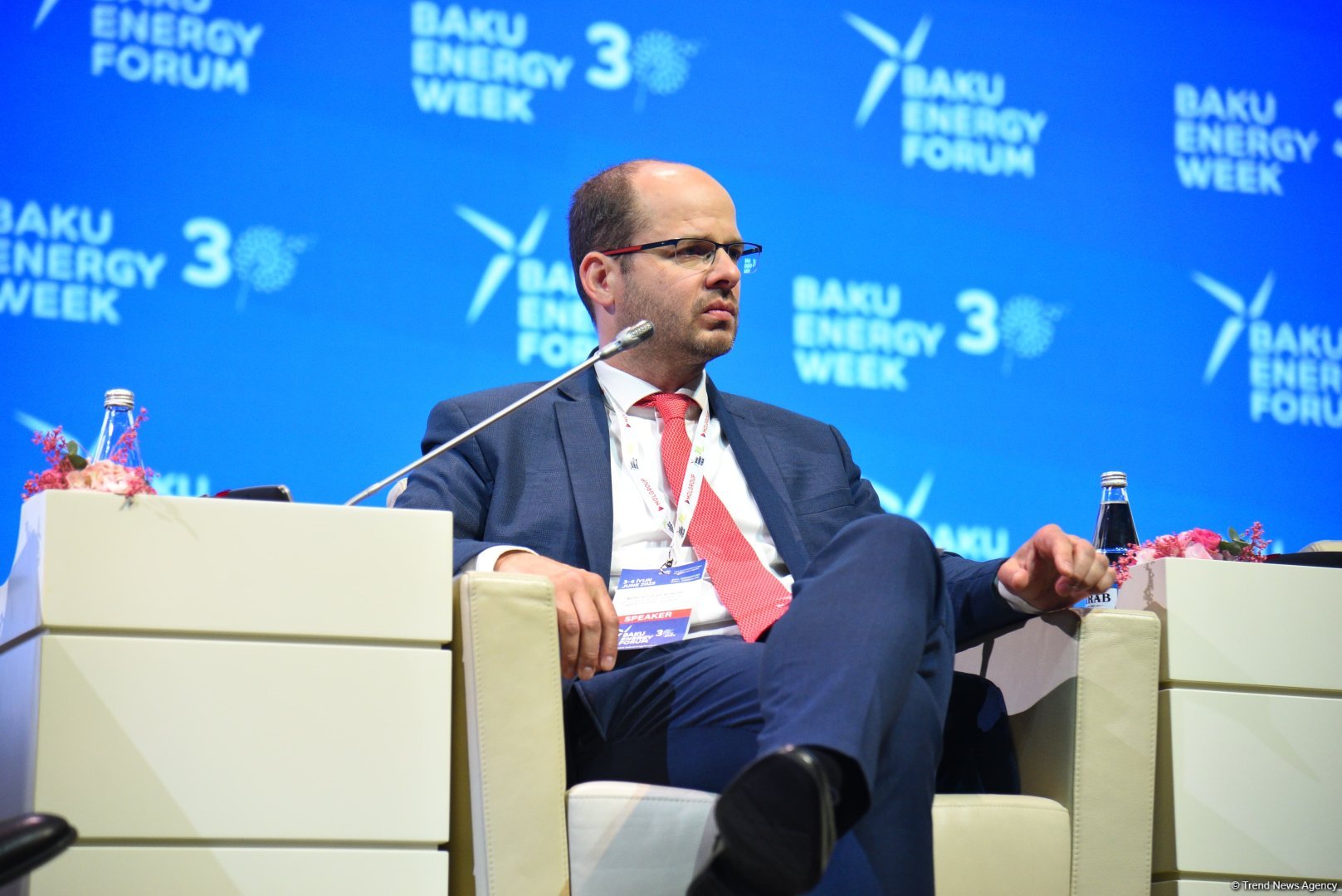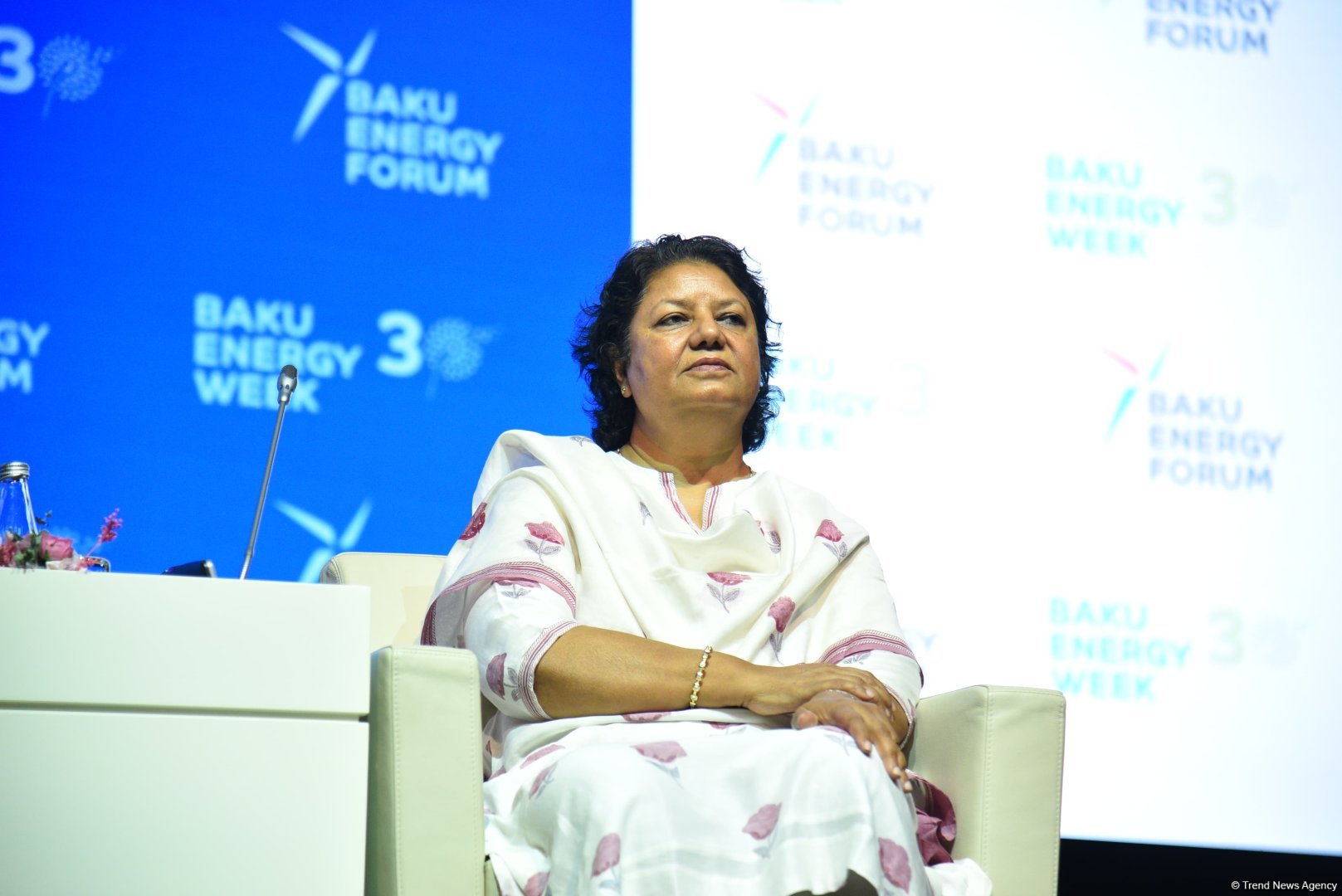BAKU, Azerbaijan, June 4. The second day of the 30th anniversary Baku Energy Forum has ended, Trend reports.
The forum was held within the framework of the 30th Baku Energy Week, which is also timed to coincide with the 30th anniversary of the Caspian International Oil and Gas Exhibition and the 13th Caspian Power and Green Energy International Exhibition - Caspian Power.
This year, 267 companies from 39 countries took part in Baku Energy Week. The geography of the participants covered the entire energy landscape - from Europe and the Middle East to Asia and Africa.
Addressing the forum, Azerbaijan's Deputy Foreign Minister and COP29 chief negotiator Yalchin Rafiyev stated that despite global challenges, Azerbaijan ensured COP29's effectiveness.
According to him, the COP29 conference is historic not only for the results achieved, but also for the difficult conditions in which it was held: “We must realize how important COP is in terms of structure. The focus of the discussions in Baku was on climate finance, which was one of the pillars of the agreement. Without financing, you can neither reduce emissions nor adapt to climate change,” the Deputy Minister emphasized.
Representative of the President of the Republic of Azerbaijan on climate issues, COP29 President Mukhtar Babayev, noted that Azerbaijan and Brazil are jointly developing a program called “From Baku to Belém”. The purpose of this program is to increase the target for climate finance from $300 billion to $1.3 trillion.
Babayev noted that a historic result was achieved at COP29 - an agreement on financing of $300 billion. “Within COP29, a large-scale program - “From Baku to Belen'- was also approved: financing from $300 billion to $1.3 trillion from different sources. We are working on the development of this program together with the Brazilian team. This means that it is important for us to identify opportunities to attract additional financial sources for the realization of our climate agenda,” he said.
Later, the Deputy State Secretary of the Ministry of Energy of Hungary, Mark Alföldy-Boruss, added in his remarks that Hungary is trying to gain access to green energy produced in Azerbaijan.
“We welcome the Green Energy Corridor initiative and are working to gain access to green energy produced in Azerbaijan. Through this, we want to strengthen the security of the energy supply and support our climate goals. We believe that COP29 marks the beginning of a new era. As climate finance mechanisms have already been defined, Hungary supports cooperation, green development, and partnership based on the decisions taken at COP29,” he said.
Managing Director of Boston Consulting Group (BCG), Anton Kosach, said at the Baku Energy Forum that Azerbaijan is accelerating towards ambitious climate goals.
According to him, Azerbaijan is demonstrating decisive progress in implementing the climate agenda and developing green energy:
“I am proud to participate in this important discussion. We see significant progress and serious ambitions - both in the set goals and steps towards their achievement,” he emphasized.
Kosach also noted that the introduction of innovative solutions, including artificial intelligence, plays a key role in the transformation of the energy sector:
“In a short period, several products have been brought to the market, including AI-based solutions for controlling methane emissions, allowing for to management of this process in an integrated form. The projects on the use of ionic liquids and energy storage systems modeled at the Caspian Institute of Artificial Intelligence are also being developed,” Kosach added.
The official emphasized the importance of Azerbaijan's initiatives within COP29, including the development of a green energy corridor and export projects aimed at sustainable energy supply in Europe.
Furthermore, the Deputy Director General of the International Renewable Energy Agency (IRENA), Gauri Singh, noted that the world community needs to intensify efforts to triple the use of renewable energy sources by 2030.
“Last year, 585 gigawatts of renewable capacities were put into operation, and the volume of investments in this sphere increased by almost 100 billion euros. However, this pace is not enough to achieve the set goals - it is necessary to triple the volumes to 11 terawatts,” she emphasized.
Singh also drew attention to the global inequality in the development of green energy. She said that if China, the EU, and the US are excluded, the remaining countries have commissioned only 17 gigawatts of renewable capacity, pointing to a severe financing gap in developing countries.
“The cost of capital for developing countries is much higher than for developed countries. There is an urgent need to reform financial mechanisms if we are to ensure equitable growth,” she noted.
The official also emphasized the importance of investing in energy infrastructure, in particular the power grids that transmit energy, to avoid a mismatch between production and consumption.
SOCAR Vice President Afghan Isayev stated that, considering the complicated logistics and lack of access to the open sea, there is a need to create a consortium on the Caspian Sea.
According to him, logistics is one of the main challenges facing Azerbaijan. “We have no access to the open sea. On the other hand, the transportation of giant wind curtains more than 90 meters long is a difficult task. We need specialized ships for construction work on the shelf. These ships must also be built here. Therefore, we propose our neighbors in the Caspian Sea region unite - just as we did in the oil and gas sector in our time: create consortia, share costs - so the process will be faster, cheaper, and more efficient,” he stressed.
Elchin Ibadov, General Director of SOCAR Türkiye, added in his speech that artificial intelligence and cybersecurity are the priorities of SOCAR Türkiye's strategy.
He noted that the digital transition is not just a fashion trend; it is a necessity. “Without it, it is impossible to increase motivation, profitability, attract talent, and shape the culture of the future,” he said.
bp's Vice President in Georgia Ayten Agalarova-Hajiyeva also noted that the Azeri-Central-Sharqi (Azeri Central East - Ace) platform, located in the Azeri - chiraq - gunashli field block, is the most technologically advanced platform in bp's portfolio.
“ One of our latest and most significant projects is the Azeri Central East - Ace platform. This platform is the most technologically advanced in bp's portfolio. We have implemented digital Dual Technologies here, automated the superstructure and drilling rig, and reduced personnel involvement on the platform as much as possible to improve safety and digitize offshore operations,” she noted.
Kamal Abbasov, Deputy Minister of Energy of the Republic of Azerbaijan, added that recent events in the world have shown how important a stable and reliable energy supply is. At the same time, countries are working on the transition to cleaner and more environmentally friendly energy sources. These two goals are not easy to achieve at the same time. And it requires a smarter and more flexible system that will both ensure energy security and help the world transition to a low-carbon future.
He said that natural gas plays a key role not only as an energy source, but also in many areas of our lives: “one of the most important examples is fertilizer production. These fertilizers are used to grow the food that millions of people eat. In this respect, natural gas supports food security, which is even more important at a time when the world's population is growing.
In turn, Gábor Orbán, CEO of MVM Energy, noted that the influence of short-term contracts on the structure of the global gas market is growing.
“The share of liquefied natural gas (LNG) in supply is growing, and the influence of short-term markets is increasing. Even if short-term markets are becoming more important, traditional long-term contracts and regional pipeline infrastructure are still the most important elements of supply. Long-term contracts provide predictability, investment security, and this is very important for both buyers and sellers,” he said.
Colin Allan, bp's vice president for finance in the Azerbaijan-Georgia-Türkiye region, stated that the Southern Gas Corridor remains a key element of regional energy security and supply stability.
“We see a close interaction between the upstream segment and the market. Upstream investments are impossible without the market; the market itself depends on these investments. It is about security, reliability, and mutual benefit,” he emphasized.

